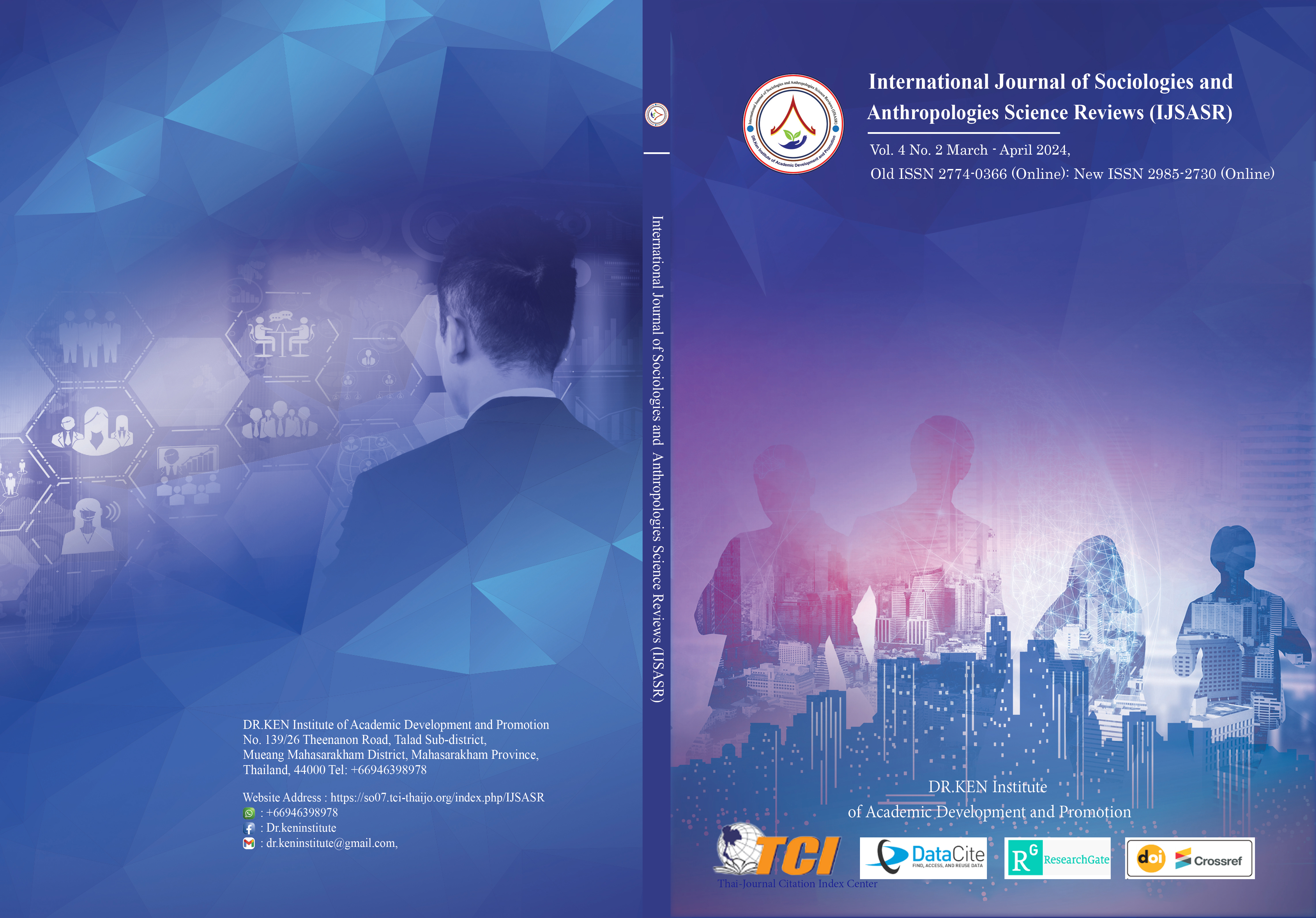A Construction of Physical Activity Games to Develop Physical Health of Kindergarten Aged 5-6 Years in Tianhe District, Guangzhou City
Main Article Content
Abstract
Background and Aim: Research on children's sports activity and games is an emerging research field in China. Relevant research results show that the development of children's basic physical qualities has not effectively penetrated the field of children's learning. The goal of this study is to establish a set of children's sports activity games, to better promote the healthy growth of children.
Materials and Methods: This study adopted the interview method, questionnaire survey method, and children fitness test, through the questionnaire survey of 20 preschool teachers, and 20 kindergarten principals, and the physical health test, established the basic children's sports activity games with 7 experts; interviewed 19 focus group experts, determine the basic sports activity games; after verification by 9 appreciation experts, finally determined the sports activity games. The research process involves organizing the current problems in children's physical education, first establishing children's physical activity games, and then verifying them using focus groups and appreciation groups. The obtained data were processed using EXCELL and SPSS26.0.
Results: Established physical activity games for children aged 5-6 years, contains 24 games with 6 qualities. The development of speed quality of the game: paste, eagle catch a chicken, fishing, electricity; The development of sensitive quality of the game is: feet continuous jump, fun to play sheep corner kick, jump bamboo pole, two people three feet; The development of balance quality of the game are: balance beam, everyone together to repair the bridge, single foot standing, play tires; The development of coordinated quality of the game is: standing long jump, bag jump, hopscotch, skipping music; The development of strength quality of the game are: tennis throw far, small bomb, newspaper play more and more, sandbag a thing to play; The development of flexible quality of the game are: sitting body forward bending, flipping pancakes, flipping saw pull big saw, guessing first move.
Conclusion: Through the establishment of a children's sports game system, children can develop and improve their sports quality in an all-round way in an interesting and challenging environment. This is of great significance for the practice of preschool physical education and provides a useful reference for future research and practice.
Article Details

This work is licensed under a Creative Commons Attribution-NonCommercial-NoDerivatives 4.0 International License.
Copyright on any article in the International Journal of Sociologies and Anthropologies Science Reviews is retained by the author(s) under the under the Creative Commons Attribution-NonCommercial-NoDerivatives 4.0 International License. Permission to use text, content, images, etc. of publication. Any user to read, download, copy, distribute, print, search, or link to the full texts of articles, crawl them for indexing, pass them as data to software, or use them for any other lawful purpose. But do not use it for commercial use or with the intent to benefit any business.

References
Bai, J. (2008). To analyze the training of children's speed and quality. China Sports Science and Technology.
Corbin, C. (2016) Implications of physical literacy for research and practice: A commentary. Research Q Exe Sport,87 (1), 14-27.
Deng, H.Y. (1998). Sensitive period of growth of speed quality of children. Hubei Sports Science and Technology.
Duan, B. (1999). Experimental research on improving and developing children's coordination. Journal of Xi' an Institute of Physical Education, 16 (2), 52-54.
Fang, M. (2016). Study on the influence of taekwondo practice on children's physique. Youth Sports,4, 72-74.
Guo, Y. (2022). A study on the effect of physical activity play on preschoolers development. Beijing: The Social Sciences Academic Press.
Ji, P., & Fan, L. (2011). On muscle strength development in children aged five-six. Xiamen Sports Science.
Jin, J.S. (2019). Game course theory. Shanghai: Shanghai Jiao Tong University Press.
Li, X. (2018). Preschool education from multiple perspectives. Chang Chun: Northeast Normal University Press.
Luo, A.J. (2011). Study on the cultivation of balance ability in children's sports activities. Hubei Sports Science. 2011(1),36-38
Ministry of Education of the People’s Republic of China. (2022). Guidelines on the Quality Assessment of Kindergarten Childcare Education. Ministry of Education of the People’s Republic of China.
Wang, X.Y. (2010). The enlightenment of the law of physical fitness development of children aged 3-6 in Shanxi Province on children's martial arts teaching. Martial arts science.
Xiang, S.Z. (2022). Content construction of kindergarten physical education curriculum under the perspective of integrated construction. Research and communication, 261-262
Yang, X.P. (2004). Study on the sensitive quality training of children's basketball sports. Sports Science.
Zhang, Y.C. (2018). Study on physical fitness exercise methods in early childhood. Beijing: Beijing Sport University.
Zhao, Q. (2010). Study on the influence of taekwondo practice on children's physique. Youth sports. 4, 72-74.
Zhou, Y. (2019). The most important content of early childhood development and education: action education and comprehensive training. Journal of Guangzhou Physical Education Institute. 34(6),108-112.






